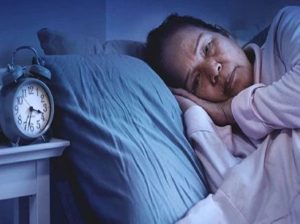
After developing COVID-19, if you experience breathless spells during the day, you need to make sure you are getting enough sleep. Researchers have recently discovered that individuals admitted with Covid had sleep patterns that were likely to contribute to shortness of breath.
The University of Manchester and Leicester undertook a study of patients at 38 institutions in the UK and discovered that 62 per cent of Covid patients experienced sleep disturbance, which was expected to endure for at least 12 months. Breathlessness and disturbed sleep are two symptoms associated with the post-Covid condition, according to a study published in The Lancet Respiratory Medicine.
On average, individuals who had been hospitalised for COVID-19 slept for more than an hour, but their sleep patterns were less regular (19 per cent less regular on the sleep regularity measure) than those of comparable people who had been admitted for any other disease.
Sleep disturbance can cause anxiety
Additionally, the researchers discovered that those who had sleep disruption were more likely to have anxiety and physical weakness, all of which are typical signs of post-COVID-19 syndrome.
According to Dr John Blaikley, a clinical scientist from the University of Manchester and respiratory physician, the study discovered that due to its links to impaired muscular function and anxiety, sleep disruption may have a significant role in the development of post-Covid dyspnea.
Although the sleep disruption was likely to induce breathlessness directly, the connection between sleep disturbance and breathlessness could also be partially mediated by impaired muscular function and increased anxiety, both of which are known to cause breathlessness. The authors hypothesise that treating sleep disturbance in these individuals by lowering anxiety and enhancing muscular strength may reduce breathlessness, though a detailed study is required on this.
Breathlessness can result from disorders that impact the cardiovascular, respiratory, neurological, and mental health systems, making it difficult to understand its origins.
Our research indicates that sleep disruption, which is linked to dyspnea, is a prevalent issue following hospitalisation for COVID-19. Callum Jackson, the study’s lead author from the University of Manchester, added, “We also demonstrate that this is likely to last for at least 12 months.”




 Driving Naari Programme launched in Chandigarh
Driving Naari Programme launched in Chandigarh






























